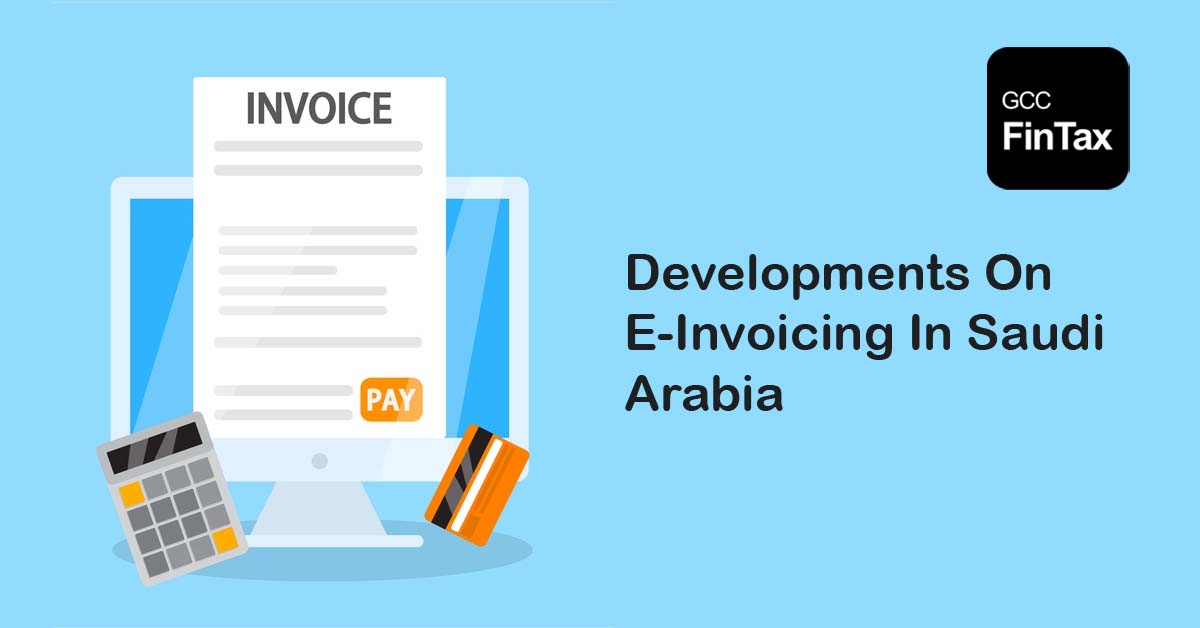
The General Authority of Zakat and Tax (‘GAZT’) has published Electronic Invoicing regulation on 4th December 2020. The new regulation defines the provisions, terms and requirements related to electronic invoices. A 12-month window has been given to the taxpayers to comply with the new regulation.
What is an E-Invoice?
A tax invoice generated in a structured electronic format through electronic means will be termed as an E-Invoice. However, a scanned copy of paper invoice will not be considered as an E-Invoice.
What are Electronic Notes?
Debit and credit notes issued in a structured electronic format through electronic means that must be issued in accordance with the VAT Law and its Implementing Regulation.
Who will be subject to the regulations of E-invoicing?
Persons who are not resident in the Kingdom are not required to issue Electronic Invoices or Electronic Notes for supplies or amounts received which are subject to tax in the Kingdom
The Electronic Invoices and Electronic Notes issued under this Regulation are considered tax invoices and credit and debit notes according to what is stated in the VAT Law and its Implementing Regulation. All provisions applied to tax invoices and credit and debit notes shall apply to them, including, but not limited to, the following:
What are the main Technical specifications related to E-Invoicing?
The technical solution used to issue Electronic Invoices and Electronic Notes:
The Governor may specify any controls, requirements, technical specifications or additional procedural rules related to the Electronic Invoices and Electronic Notes
What is the timeline to comply with the E-Invoicing regulation?
Taxpayers are required to comply by 4th December, 2021 with the E-invoicing regulation.
The Governor has the authority to determine the time limits and targeted groups as well as issuing the necessary decisions and instructions to implement the provisions of this Regulation. The E-Invoicing regulation is to promote transparent and fair business practices in Saudi Arabia. Taxpayers must comply with the regulation within 12-month window to avoid penalties or fines.
Disclaimer: Content posted is for informational & knowledge sharing purposes only, and is not intended to be a substitute for professional advice related to tax, finance or accounting. The view/interpretation of the publisher is based on the available Law, guidelines and information. Each reader should take due professional care before you act after reading the contents of that article/post. No warranty whatsoever is made that any of the articles are accurate and is not intended to provide, and should not be relied on for tax or accounting advice.
You can access Law including Guidelines, Cabinet & FTA Decisions, Public Clarifications, Forms, Business Bulletins for all taxes (Vat, Excise, Customs, Corporate Tax, Transfer Pricing) for all GCC Countries in the Law Section of GCC FinTax